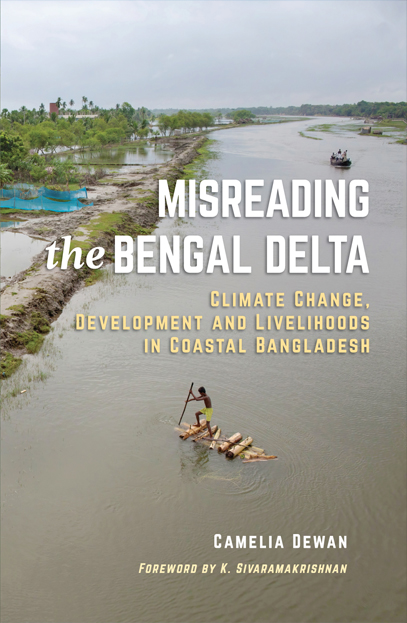Misreading The Bengal Delta
Climate Change, Development and Livelihoods in Coastal Bangladesh
https://uplbooks.com/shop/9789845064101-misreading-the-bengal-delta-11939 https://uplbooks.com/web/image/product.template/11939/image_1920?unique=0ebf3cc
| Language: English |
Tags :
Book Info
This edition is available for purchase only in Bangladesh, India, Pakistan, Nepal, Bhutan, and Sri Lanka. Perilously close to sea level and vulnerable to floods, erosion, and cyclones, Bangladesh is one of the top recipients of development aid earmarked for climate change adaptation. Yet, to what extent do adaptation projects address local needs and concerns? Combining environmental history and ethnographic fieldwork with development professionals, rural farmers, and landless women, this book critiques development narratives of Bangladesh as a ‘climate change victim’. It examines how development actors repackage colonial-era modernizing projects, which have caused severe environmental effects, as climate adaptation solutions. Bangladesh’s environmental crisis goes beyond climate change, extending to coastal vulnerabilities that are entwined with underemployment, debt, and the lack of universal healthcare. This timely book analyzes how development actors create flawed causal narratives linking their interventions in the environment and society of the Global South to climate change. Ultimately, such misreading's risk exacerbating climatic threats and structural inequalities. Contents Foreword by K. Sivaramakrishnan Introduction: Climate Reductive Translations in Development Chapter One: Simplifying Embankments Chapter Two: Translating Climate Change Chapter Three: Assembling Fish, Shrimp, and Suffering in a Saltwater Village Chapter Four: Entangling Rice, Soil, and Strength in a Freshwater Village Chapter Five: Surviving Inequality Conclusion: Misreading Climate Change

Camelia Dewan
Camelia Dewan is an environmental anthropologist focusing on the anthropology of development. She holds a PhD in Social Anthropology and Environment from the University of London (SOAS/Birkbeck). As a postdoctoral research fellow at the Department of Social Anthropology in the University of Oslo (2018-2023), she is examining the socio-environmental effects of shipbreaking in Bangladesh. She is the co-editor of two special issues- Fluid Dispossessions: Contested Waters in Capitalist Natures” (Ethnos: Journal of Anthropology) and Scaled Ethnographies of Toxic Flows (Environment and Planning C: Politics and Space). Dr. Dewan will be an Associate Senior Lecturer in Cultural Anthropology at Uppsala University from 2024.



